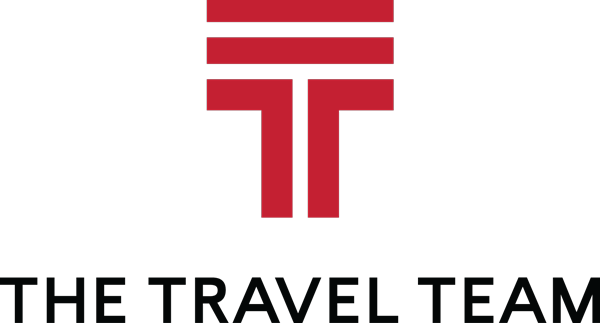In 2024, travel programs will benefit from a more stable travel industry. As a whole, we have a better understanding of what a recovering corporate travel industry looks like than we did during any of the last three years. These factors are helpful when predicting industry trends and give us confidence in this year’s insights into the hotel industry throughout 2024.
There are three important trends travel program managers need to consider when examining their hotel program for 2024, the most important being the continued increase of room rates, albeit more moderately than in 2023. While rates will continue to rise, we’re pleased to report that industry experts believe buyers will have more power in the hotel marketplace this coming year.
Trend 1: Rate Increases
As we approach 2024, expect more moderate rate increases than in 2023. This can be attributed to two reasons:
- Decreased leisure demand as post-COVID “revenge tourism” dwindles
- Increased negotiations between travel programs and hotel partners
This year, businesses are less tolerant of rate increases. At the same time, hotels are more receptive to and accommodating of business travelers. For attractive rates, we recommend focusing on key partners in important destinations. This is especially valuable advice for smaller travel programs like those of SMEs. In this situation, consider consolidating with fewer partners to increase volume. You may also find value in unifying travel and meeting management data where possible for both additional insight and increased volume. Corporate travel programs may need to be open to new partners for the most competitive room rates.
For partners or destinations where your travel program doesn’t have the volume to support negotiated room rates, you’ll still have the benefit of The Travel Team’s hotel services, which include exclusive discounted rates, amenities, and benefits through the TTT Hotel Program.
Rates will still rise due to a variety of factors. Wages, especially in the US, and inflation continue to play a role in room rate increases. There is a decreased correlation between occupancy and rates; hotels are no longer decreasing prices to increase occupancy. This is due to both staffing shortages and the market’s tolerance for higher prices.
Lastly, supply will be limited in key locations. In Boston, demand has traditionally outpaced supply and that continues to be true. In New York City, corporate travel programs should consider the impact of the city’s short-term rental legislation for travelers. Canada as a whole saw record-breaking average daily rate (ADR) and revenue per available room (RevPAR) levels in 2023. While new construction is ongoing, many hotels designed to meet this demand won’t be operational until late 2024. The UK is experiencing a similar situation; both leisure and corporate travel are impacting room rates. Industry thought leaders note that while the UK is constructing new hotels, demand will likely outpace supply. While the UK is constructing new hotels in higher numbers than elsewhere in Europe, demand will likely outpace supply.
Events will also impact availability. This year marks the return of many major trade shows, especially in popular convention cities like Chicago and Dallas. Remember that Western European booking will be greatly impacted in mid-summer due to the 2024 Olympic Games in Paris.
Average Room Rate Increases by Country
Based on Top Business Destinations
United States
Chicago: 12.6%
Boston: 11.3%
San Jose: 10.2%
Portland: 9.5%
Dallas: 8.2%
Atlanta: 7.5%
Newark: 7.2%
New York: 6.8%
San Francisco: 6.2%
Charlotte: 4.6%
Latin America
Mexico: 6.8%
Brazil: 6.6%
Argentina: 17.5%
Chile: 7.4%
Colombia: 14.1%
Peru: 5.1%
Canada
Vancouver: 8.9%
Montreal: 8.3%
Toronto: 6.7%
Europe
Benelux: 8.6%
France: 8.6%
Nordics: 7.2%
Germany: 6.7%
Switzerland: 4.5%
Spain: 7.2%
UK & Ireland: 7.5%
Italy: 2.9%
Middle East
United Arab Emirates: 8.4%
Saudi Arabia: 4.6%
Africa
Nigeria: 2.2%
South Africa: 7.3%
Egypt: 14.6%
Morocco: 9.5%
Asia
China: 6.5%
Hong Kong: 1.9%
India: 12.7%
Indonesia: 10.9%
Malaysia: 7.0%
Philippines: 9.3%
South Korea: 6.3%
Singapore: 7.5%
Vietnam: 5.8%
Japan: 4.8%
Australasia
Australia: 5.9%
New Zealand: 3.5%
Trend 2: Shifting Behavior
Travelers’ wants and needs have changed as corporate travel returns to pre-pandemic levels. Safety is a top priority both when choosing partners and while on the road. When considering a negotiated property, location safety should be considered. For travelers interested in more information on the safety of their destination, the TTTMobile app includes neighborhood safety scores to give employees insight into the locations they’re staying.
More employees now enjoy the flexibility of remote and hybrid work. They want travel to reflect this freedom. Travel programs will need to adapt to travelers’ demands for shorter, more frequent trips and fewer longer trips. More trips will also combine business and leisure, with weekend travel dates and requests for leisure accommodations with business-friendly amenities. These desires hint at the larger trend toward traveler choice. Providing options that reflect employees’ priorities increases compliance with corporate travel policies.
Trend 3: Sustainability
Lastly, sustainability continues to emerge as a focal point in organizational strategic planning. If sustainability is a priority for your organization, incorporate it into your hotel program by targeting new and existing hotel partners with sustainability initiatives.
If you’re not sure where to start, The Travel Team can assist with its Hotel Program Management service, which incorporates sustainability into every property RFP and includes additional reporting capabilities powered by Thrust Carbon.


